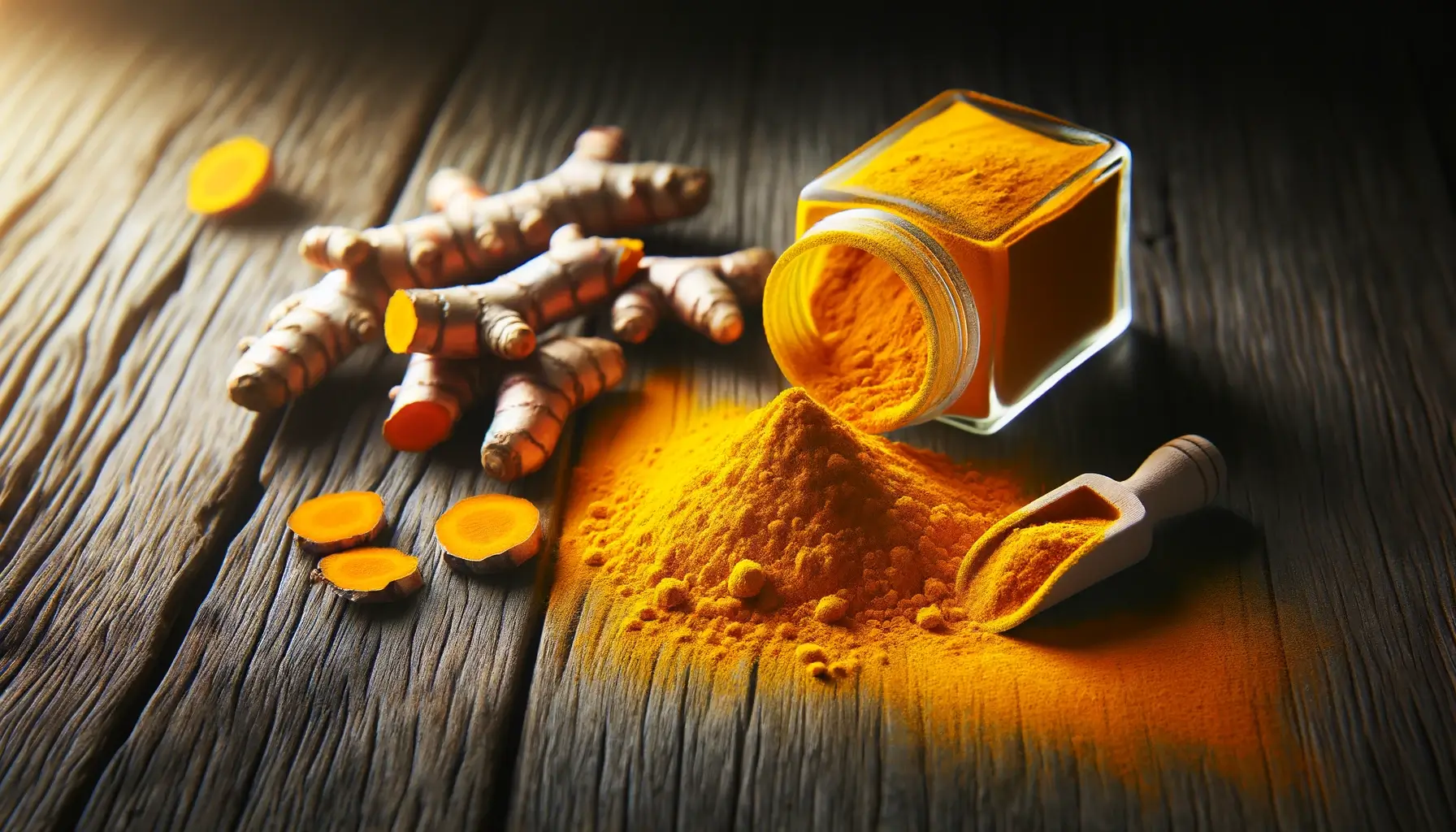
Article Summary
MSM and Turmeric are generally safe joint supplements to combine. The risk of side effects is extremely low if you’re a healthy person. Turmeric can have a blood thinning effect, so if you’re on blood thinning medications, check with your physician before taking turmeric supplements.
While MSM helps to protect joints and connective tissues, turmeric fights off inflammation at the cellular level. The optimal dosage for MSM is between 1500-3000mg per day, and for turmeric, 500-1000mg of the active compound curcumin with black pepper extract (piperine) per day.
How The MSM and Turmeric Combination Works
MSM, short for Methylsufonylmethane, is an organic compound naturally occurring in the environment, humans, plants, and animals—it can also be made in a lab.
As organic sulphur, MSM promotes skin healing, nail and hair growth, and supports healthy joint tissues1. It works by:
- Stimulating collagen production. MSM is sulphur, and sulphur is a building block for amino acids that make up collagen. As for collagen, it’s crucial for the repair and formation of new tissues, including joints, hair, skin, nails, and muscles.
- Reducing inflammation. MSM is known to inhibit inflammatory proteins such as NF-kb2 which, when chronically elevated, can lead to tissue damage and joint pain. This is why MSM is often used in joint health formulas that contain other ingredients like glucosamine.
- Enhancing glutathione levels. Glutathione is your body’s master antioxidant that fights off the detrimental effects of ageing such as inflammation, oxidative stress, and tissue destruction.
Meanwhile, we have turmeric, which is a golden-yellow spice from India that is known for its wealth of healing properties.
Studies show that the active component of turmeric, curcumin is responsible for many of turmeric’s health benefits, including3:
- Improved joint function
- Less inflammation in the body
- Supports long-range brain health and fights neurodegenerative conditions
- Promotes heart health
- Enhances immunity
The trick with turmeric is to take it with black pepper. Why? Because curcumin, the active compound of turmeric, has low absorption in the gut. When you mix it with piperine, the active compound within black pepper, its absorption in the blood raises dramatically.4
Combining turmeric with MSM can provide synergistic benefits when it comes to:
- Reducing inflammation. Both MSM and turmeric increase antioxidants such as glutathione and superoxide dismutase (SOD) which help protect your body from oxidative stress.
- Improving joint and connective tissue function. While MSM boosts collagen, turmeric combats free radical damage to your joints, brain, liver, and other tissues.
Safety & Other Notes
Turmeric and MSM and generally seen as safe. However, if you’re on any medications or have a health condition, don’t take either supplement before checking with your MD.
Turmeric is touted as one of the healthiest supplements in the world, but it may not work for everyone. You will want to try it for yourself to find out if it’s the right choice for you.
As a side note, I prefer consuming supplements, herbs, and foods that are from my native country or my region, as compounds that are otherwise healthy but are from other parts of the world might not work well with my physiology.
Ending Thoughts
Experts suggest you can take up to 3000mg of MSM per day. You can take either a generic brand of MSM, or if you can afford it, a higher-quality solution like OptiMSM.
With turmeric, it depends on its curcumin content.
Taking a standalone curcumin supplement containing 500-1000mg of curcumin per daily serving with an added black pepper extract is likely going to have more potent effects on inflammation and joint health than taking turmeric powder alone, simply because curcumin supplements tend to be more concentrated.
Taking a combination of turmeric and MSM should help you from different angles, including joint health, brain function, and liver detoxification among others.
Further Reading: Is MSM Good for The Brain?
References
- Butawan M, Benjamin RL, Bloomer RJ. Methylsulfonylmethane: Applications and Safety of a Novel Dietary Supplement. Nutrients. 2017 Mar 16;9(3):290. doi: 10.3390/nu9030290. PMID: 28300758; PMCID: PMC5372953. ↩︎
- Miller LE. Methylsulfonylmethane decreases inflammatory response to tumor necrosis factor-α in cardiac cells. Am J Cardiovasc Dis. 2018 Jun 15;8(3):31-38. PMID: 30038844; PMCID: PMC6055070. ↩︎
- Prasad S, Aggarwal BB. Turmeric, the Golden Spice: From Traditional Medicine to Modern Medicine. In: Benzie IFF, Wachtel-Galor S, editors. Herbal Medicine: Biomolecular and Clinical Aspects. 2nd edition. Boca Raton (FL): CRC Press/Taylor & Francis; 2011. Chapter 13. ↩︎
- Freitas E Silva-Santana NC, Rodrigues HCN, Pereira Martins TF, Braga CC, Silva MAC, Carlos da Cunha L, de Souza Freitas ATV, Costa NA, Peixoto MDRG. Turmeric supplementation with piperine is more effective than turmeric alone in attenuating oxidative stress and inflammation in hemodialysis patients: A randomized, double-blind clinical trial. Free Radic Biol Med. 2022 Nov 20;193(Pt 2):648-655. doi: 10.1016/j.freeradbiomed.2022.11.008. Epub 2022 Nov 9. PMID: 36370961. ↩︎

Leave a Reply